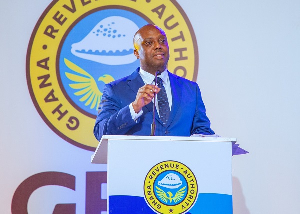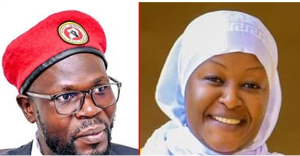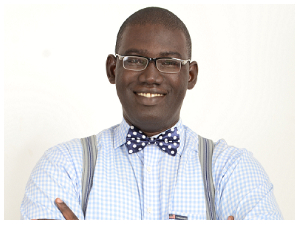I have read with utmost interest and surprise on Ghanaweb on the topic of some Ghanaians’ obsession with academic titles in particular and titles in general. Why did I find that interesting? The articles and commentaries they elicited touched the heart of what I believe illustrates our power-distant culture (we tend to tolerate substantial gap between the powerful and the powerless in our society that sometimes it becomes indistinguishable from authoritarian personality). And why do I find the discussions surprising? Mostly, we failed to discuss the issue within our cultural context; we use isolated cases in the US and the UK to back our claims. Overall, the discussion is healthy and must continue. I decided to focus on one theme that surfaced and kept resurfacing in the discussions: Does higher educational attainment correlate with intelligence? Most concluded that there is no such direct relationship. It is this conclusion that drove me to write this article. As I saw the conclusion being drawn, I asked myself if such a conclusion is right from a psychological point of view. In this article, I will attempt to explain what intelligence is and how it differs from wisdom as well as how both relate to educational attainment.
What is intelligence? It sounds simple. And the funny thing is that we psychologists have measured it for centuries yet there is no consensus as to what intelligence is. We measure it as a predictor of job and academic performance. Each person seems to define it in a way that best suits his or her context. However, majority of psychologists will agree with me that intelligence is our capacity to reason, plan, learn, understand concepts, engage in abstract thinking, solve problems and use language. How have we measured intelligence? The commonest way has been to employ aptitude or achievement tests though there are various complicated tests that generate IQ values. The use of BECE results for Senior High School admission is premised on the assumption that they capture the children’s intelligence or their ability to learn whiles a GRE score is purported to reflect one’s ability to do graduate studies. The understanding is that an intelligent person can learn from experience or show an ability to adapt to new environment. In other words, intelligence as defined here (either in the form of aptitude or achievement) is a pre-requisite for learning or acquisition of knowledge.
What is then wisdom? This is where I had the greatest difficulty. Psychologists think of wisdom as the coordination of knowledge with experience and its deliberate use to improve wellbeing while philosophers believe that wisdom is about making the best use of available knowledge. Both philosophers and psychologists agree that wisdom has to do with use of knowledge. So how does intelligence differ or relate to wisdom? Since one needs knowledge before its use is possible and as intelligence is required for the acquisition of knowledge and wisdom for its use, we will conclude that all wise people are intelligent but not all intelligent people are wise. This is to say that wise and intelligent people are alike except that wise people use their intelligence differently and usually in ways that their society considers appropriate. For instance, I know that in hiring someone for a clerical position in an organization I must assess the person’s typing skills but may still overlook it and do the hiring without any assessment. Being taught recruitment and selection in an MBA Human Resource Management class does not translate into the use of such knowledge for the good of the company you work for or your business if you are self-employed. Again, someone with knowledge in corporate finance and auditing may decide to use her knowledge to rob her organization instead of helping it stop embezzlement. Why? Because she thinks she knows how to steal and cover up. In short, what it takes to acquire knowledge (intelligence) differs from what it takes to use it (experience, personality traits, and other personal characteristics). This is why it is not even wise for any company to hire a fresh MBA graduate without experience straight into a substantive management position without putting him or her through at least two years of management training. We need knowledge to make wise decisions but having knowledge alone is insufficient for wise decision-making. One person can be “onimdefo” (knowledgeable person) and another “onyansafo” (wise person) but the “onyansafo” is also “onimdefo” at the same time. In conclusion, I state emphatically that there is a strong correlation between intelligence and higher educational attainment but such a correlation does not exist between wisdom or best use of knowledge and higher formal educational attainment. Thus, one needs high intelligence to acquire a PhD but that does not make one wise. This is because intelligence is for knowledge acquisition and wisdom is about the use of such knowledge. This is why there are both rich and poor PhD holders in our society. Our wise men in Ghana usually have knowledge of whatever they talk about irrespective of how they acquired it and they coordinate that with their experience to make wise decisions. Wisdom and age are also correlated but again it is how the aged person uses his or her experience and knowledge that determines how wise he or she is.
Why do some Ghanaians then seem to associate PhDs in particular and university education in general with wisdom? I don’t have any data to back my claims but will use my knowledge in Social Science and my understanding of our culture to make my arguments. Let’s examine our proverbs first. They evolve over time through observation, knowledge and experience; they constitute heuristics or mental shortcuts for wise decision-making in their most appropriate circumstances. To us, knowledge must improve our wellbeing because we “live the knowledge” in our everyday life. As a result, we assume that the process of knowledge acquisition is one and the same as the use of the product. We therefore expect all knowledgeable persons in our society to make wise decisions but knowledge without enough experience or outside its appropriate context will make it impossible to foresee the all the possible outcomes of a decision based on just the knowledge. But is such an expectation not in the right direction? But the knowledge we tend to acquire through formal education is not intended for our use at all. I repeat this when Adam Smith and co were talking economics they did not have Africans in mind; they were talking about Europeans because they could imagine how their own people behave in their theorizing. In a similar vein, when our elders were developing our proverbs they did not have Europeans in mind; that is why it becomes sometimes difficult trying to apply them in different cultural settings. This seems to lend support to the idea that knowledge applied in its appropriate context brings about maximum gain. It therefore implies that a 20-year-old PhD holder in computer science will make wise decisions in issues related to computers more than a 50-year without such knowledge. On the other hand, the 50-year-old will make wise decisions when it comes to parenting. In a similar vein, decisions made in relation to HIV/AIDS by a PhD holder in Quantum Mechanics can be as naïve as everybody’s while at the same time such decisions by a PhD holder in Sociology can also be naïve if he or she does not have experience in working with the target group to which the decisions apply. Because our colonial past affected the development of a complete Ghanaian personality (knowledge acquired in the European schools were divorced from our environment; for illustration watch “Heritage Africa” produced by Kwaw Ansah), it has become necessary to distinguish intelligence from wisdom for the time being because we hardly can live our intelligence (knowledge) without thorough adjustment. We must encourage systematic study of issues in our own environment by our own people. That is the only way we can reunite our intelligence with wisdom in our society again. But the problem is that most Ghanaians may think acquiring a PhD in eating pattern of the Akyems is worthless; the value of such knowledge is in its use. In all this, there is a need for attitude change and research grant. I take this opportunity to discuss the alleged practice of UCC lecturers using grants for academic work for purchasing cars. In the first place, the money was not grant from the government but a loan scheme from Ghana Commercial Bank; the government only played a facilitator role in the negotiation between University Teachers Association (UTA) and the bank; this means that all teachers in all the 6 public universities access thiss facility. It was part of the incentive package to attract young people into the profession instituted in 2006 or maybe earlier.
Due to either lack of knowledge or some other factors some Ghanaians think that university education makes you all knowing even if you explain to people that it is not the case. A friend who graduated with a Second Upper Division in Mathematics from University of Ghana once told me that the grandmother expects him to tell her the product of any two numbers (eg: 1234 X 324) without thinking much when she asks him all because he did Mathematics. But is that what one studies in Mathematics at the university? The answer is NO yet some people believe you should be able to do just that. As a result, some Ghanaians will even prefer a PhD holder who has no knowledge of the customs and traditions of their stool to a Form 4 leaver with adequate knowledge of the customs in choosing a chief. As if that is not enough, some think that with a university degree you should do things in a certain way, dress differently and talk differently. For instance, learning about elections in a political science class does not mean that you should vote. Why? Nobody is taught in any political science class to vote but you learn about the importance of voting; the decision to vote depends on the individual’s experience and what he or she considers wise at the time of making such a decision.
Some Ghanaians accord people with university education with some non-existent status whether such status is demanded or earned. Unfortunately, some young people now expect such status in the society, hence the lording over others of “the piece of paper that shows evidence of our university degree”. I fume with anger when people want to accord me with some unsolicited status all because I happen to have started my master’s degree at age 24 and have consumed one year of the two-year programme as a visiting research scholar at a US university (I don’t mean a community college). I ask myself if they would do that for this “small” achievement then what would they have not done if I had had a PhD by that age. So I try as much as possible not to talk about my educational background unless forced to; I want to be treated like everyone else and not as anybody’s superior because we are all in search of knowledge. In fact, there is subtle discrimination against people with university education in our society – there is an unreasonable expectation of them: you are expected to work in certain prestigious jobs and start making money and ride in the latest BMW or Benz as soon as you complete even your first degree. You will be mocked by your contemporaries who learnt a craft and are now “master craftsmen” able to make some money. Is it that the “craftsmen” pursue money to feel equal with us and compensate for their lack of higher formal education or we chase money to tell them they are not our match? Often time, the less educated in our society may feel uncertain if they have missed anything important by not pursuing higher education whiles some educated people are certain that they must “get more money” to keep them believing that they missed something. Each of us experiences some intra-psychic or intrapersonal conflict about our place or status in society that we resolve by pushing one another below us knowingly or unknowingly (you have status if you have others below you). In all sincerity, this is the seed of corruption that the society sows in its educated youth – being asked to show off wealth that you don’t have leads to stealing by any means if the youth have no values and self-control.
The issue is not as simple as I have treated it. There are push (societal) and pull (focal person) factors but which triggers the other? I believe there is no straightforward linear causality but that unreasonable expectation may be the result of their interactions. In this regard, I believe there is a need to educate ourselves to moderate our expectations of someone with higher formal education. It is unfortunate that not every one of us has had the opportunity of pursuing a university education to understand my point but let’s do our part by changing our own expectations and the expectations others have of university education. Can this be similar to the unreasonable expectations Ghanaians resident at home hold of Ghanaians living abroad? This expectation is fed by both the lies told by some Ghanaians living abroad and the wild unfounded imagination of possibilities held by some Ghanaians resident at home. My advice to everyone is that you should always ask yourself why you should ever accept as the absolute truth what the educated ones tell you. There are some who are less intelligent than you in your school days yet still made to the university but maybe you couldn’t because of money. Some graduate with first class and others pass while others drop out or are sacked. What if we make things up to confuse you! The fact that someone claims to have learned what he talks about doesn’t make what he says to be the truth. What if he didn’t he even understand it when he was being taught or misunderstood it when he read it. Try to think through whatever you read or hear, particularly when what we claim to know is outside what actually we studied.















